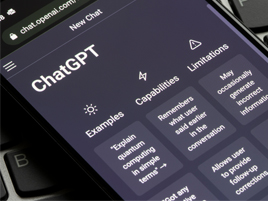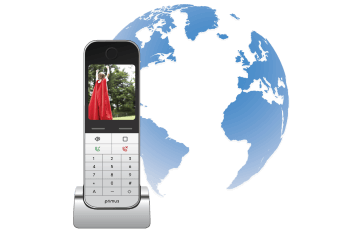Brought to you by Primus - a smart choice for your Internet and Home Phone services.

ChatGPT is revolutionizing the digital world. But what can you use it for, and what is a bad idea?
DO Use ChatGPT for Summarizing Lengthy Articles
Want to know what an article (or white paper, report, ebook, etc.) says but aren’t excited about a 60-minute read time? ChatGPT can summarize long text into shorter bites so you can get to the point.
DON’T Use ChatGPT for Applications Involving Sensitive Personal Information
ChatGPT can’t give you advice on sensitive topics like romance, personal security, or your deep, dark secrets, since it doesn’t know anything. And you shouldn’t tell it things like passwords, your biographical information, or your deep, dark secrets, since users actually using ChatGPT is a part of its training.
DO Use ChatGPT for Brainstorming
ChatGPT is awesome at brainstorming. Asking it for gift ideas, term-paper topics, party favours, baby names, road-trip destinations, or social media captions are some of the things we’ve used it for, and it’s been great. ChatGPT is ideal for brainstorming because you can cut out all the bad ideas—which is a normal part of brainstorming—and be left with what’s useable.
DON’T Use ChatGPT for Medical, Legal, or Financial Advice
As we’ve said, ChatGPT doesn’t actually know anything. And it sometimes makes things up. Back in May, a lawyer used ChatGPT for actual court filings and got in trouble because it made up cases. ChatGPT’s medical information is also suspect, since it “learns” by consuming internet content, and there’s plenty of misleading or outdated medical advice out there. And any medical, legal, or financial advice you need will be specific to you anyway, and ChatGPT doesn’t know you—because it doesn’t know anybody.
DO Use ChatGPT for Generating Written Content
Need some copy for your new website? An introductory paragraph to your newsletter? A nice note to write in a birthday card? ChatGPT can pitch you some ideas. Cut out the stuff that isn’t great and presto, you’re done.
DON’T Use ChatGPT for Ethical or Moral Decisions
Ethics and morality can’t be outsourced to the machines just yet. In addition to ChatGPT not really having any ethics or morality, it’s important to remember that ChatGPT is trained on internet content. Would you really want the internet to give you ethical or moral advice?
DO Use ChatGPT for Translation
ChatGPT’s translation isn’t perfect, but it’s pretty good. Obviously, if your translation will be used in a professional context, make sure someone reviews it, but the results will probably impress you. And if you’re looking for a translation just for your own personal consumption, ChatGPT will be your new translation buddy.
DON’T Use ChatGPT for Academic Assignments
Yes, you can use ChatGPT for brainstorming topics, giving you ideas, or maybe even providing you with arguments to pursue. But aside from the fact that ChatGPT makes things up, no one should be using ChatGPT for writing term papers, because it’s immoral. At the risk of sounding like an old man yelling at a cloud, the point of writing term papers is to learn to read, think, research, and write. Someone who skips out on that is doing themselves a major disservice.
DO Use ChatGPT for Programming Help
ChatGPT can help you learn techniques and languages. It can also write subroutines and even do small algorithms. We’re not quite at the stage of asking ChatGPT to create a Skyrim mod for us, but it can definitely help you with that project.






